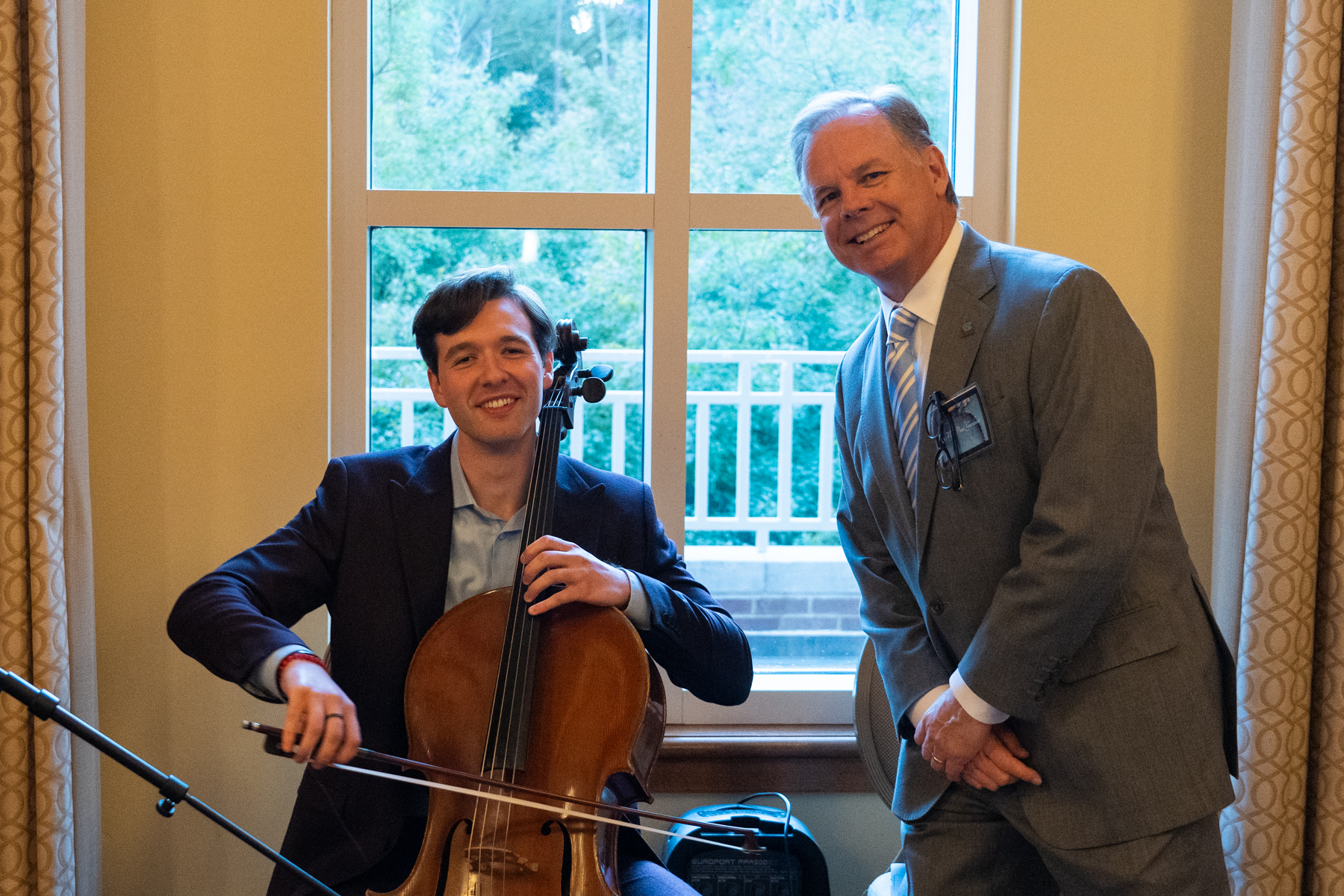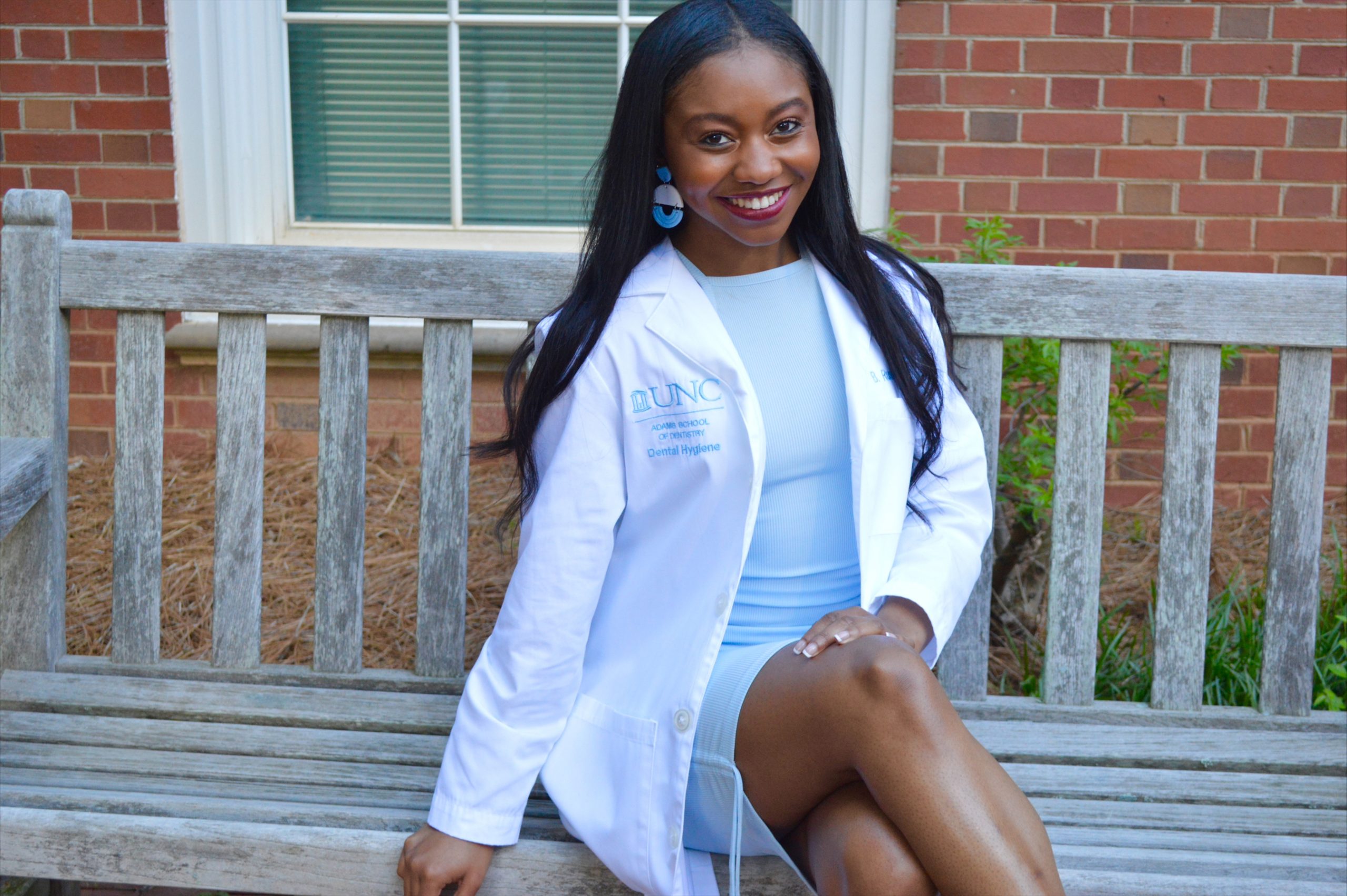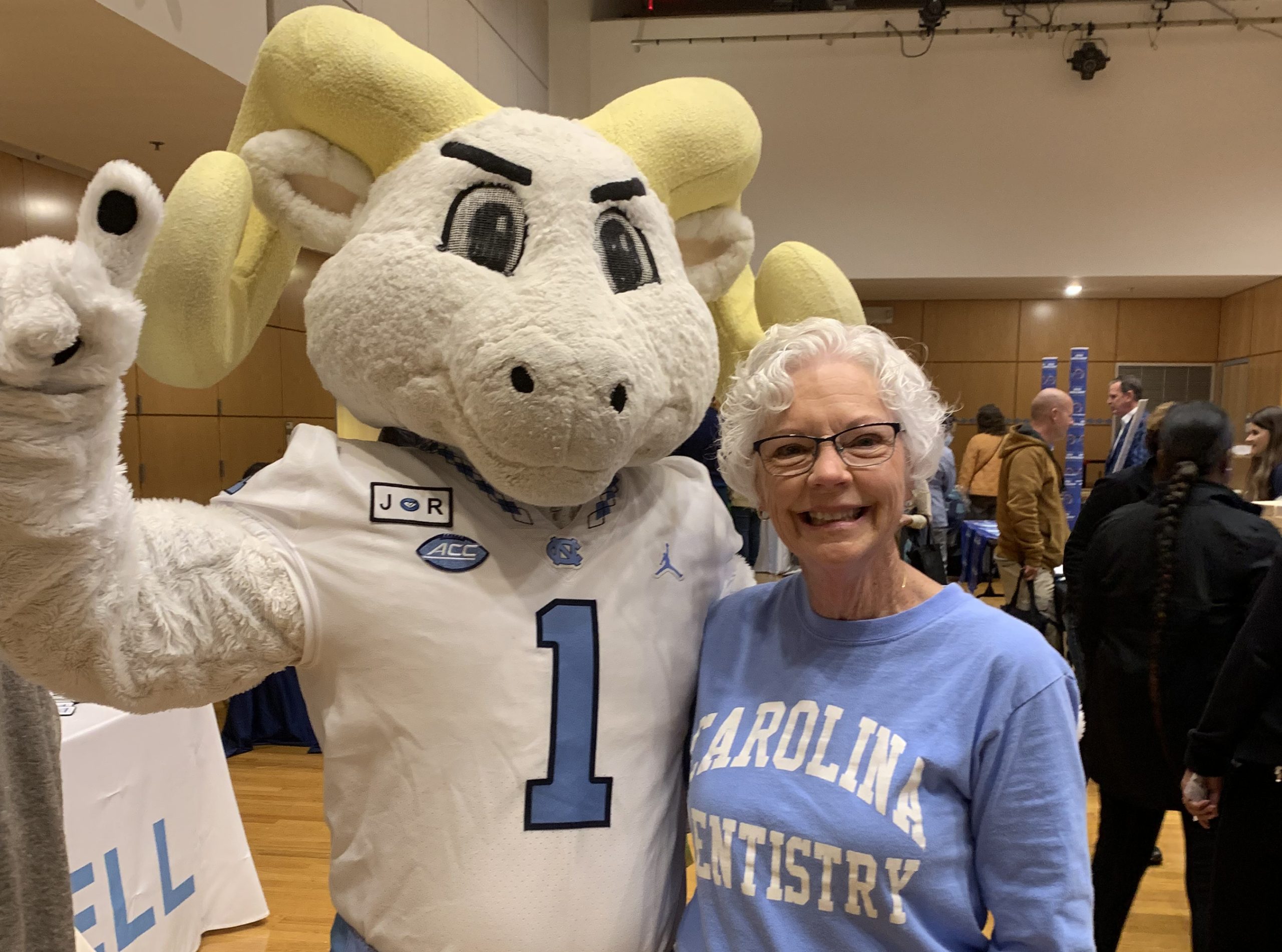Teacher and researcher’s work targets periodontal disease development and prevention

For Julie Marchesan, a passion for teaching drives her work on UNC Adams School of Dentistry’s faculty and her research efforts. Something that’s paid off in spades, as she recently secured a $3.6 million R01 grant from the National Institutes for Health for her work with periodontal disease and the difference biological sex makes in terms of disease development and prevention.

Julie Marchesan’s husband and two children keep her busy. ”There is always something going on! Going on a walk or run with them on the Tobacco Trail is probably my favorite thing to do.”
Marchesan splits her time between teaching classes at ASOD and working on her latest research efforts, a career that first started developing when she was a child living in Brazil.
“My first passion was teaching. I would teach English to my friends who only spoke Portuguese,” she said. “I enjoyed seeing the progress of knowledge, and knew I wanted to do health sciences work and care for people.”
Marchesan’s father was a doctor, her mother a nurse and her sister a dentist. She looked up to her sister and decided to go to dental school in Sao Paulo, Brazil, where she volunteered in different areas of research. She pursued specialty training in periodontics and started thinking about research when she treated a patient facing a difficult periodontal diagnosis that kept progressing beyond available treatment.
“At the time, I started treating one of my first patients, who was becoming a father for the first time and was very excited about it. Despite the fact that I treated him with the standard periodontal care, the disease continued progressing to a point that the patient lost all his posterior teeth – and I felt helpless as a clinical provider,” she said. “The joy of having the birth of a child was dramatically impacted by the periodontal disease progression in his personal life. Later, the patient lost his ability to keep his job in sales. It was such a snowball of problems. At the time, I concluded that I wanted to understand why I was not able to treat my patient, and therefore, looked for opportunities to become a periodontal researcher. This experience pushed me towards the research that I am developing today.”
After continuing to explore research while getting her PhD at University of Michigan’s dental school, she pursued a post-doc at UNC under ASOD’s former Chair of Periodontology Stephen Offenbacher, DDS, PhD, where she became interested in translational research, something she’s been working on since 2013.
Now, Marchesan’s research efforts have been recognized at the highest levels, but it was a long process and involved a team of students, faculty and staff that contributed along the way. Marchesan was exploring periodontitis using mouse models, treating both female and male mice with a drug that targeted a well-known inflammatory cytokine named IL-1b. During the analysis of the results, they found that while the drug blocked the inflammation and disease progression in males, in female mice it was a different story. Bone destruction continued to progress unabated in female mice, which meant that periodontitis used a different pathway than males that was independent of IL-1b.
“It was an unexpected finding,” Marchesan said. “This sex-dependent result in preventive care had never been reported, neither directly or indirectly, so the information is quite novel.”
The next step was to reinforce the finding. Was this an anomaly or a true breakthrough? Marchesan and her team secured smaller grants starting in 2018 to continue their work. They gathered data during the next five years, and it all reinforced the initial finding that when IL-1b was being targeted, male mice saw less disease development than female mice.
“We’ve performed studies to evaluate if it’s something with the drug or the actual gene that’s differently regulated in males and females. We have mice that were modified without the IL1b gene, and the female periodontitis remains unaltered. Our results show that it’s not a drug effect, but there’s a fundamental sex-based difference in the regulation of inflammatory bone destruction.”
With the R01, Marchesan hopes to go in a new direction that focuses on sex-stratified preventive care. “The most important part of the research is the potential benefit for patients. There are not many existing drugs to administer locally to control periodontal tissue destruction, and disease progression is often uncontrollable, something that researchers are still puzzling over. We want to push the field in a direction that is new and exciting.”
Marchesan is optimistic that her data may lead to treatments that address the individual needs of patients, considering each person’s unique genome and biology.
And while Marchesan pursues this research, she hasn’t lost her passion for teaching and said ASOD is the perfect place to enjoy scholarly activities, due to the strong leadership that supports excellence in both research and clinical care.
“Our dental school has a perfect combination of great clinicians and great researchers, and I think it makes both sides better. Teaching students in this environment makes me a better clinical researcher,” she said. “I also enjoy seeing the intellectual transformation that happens with the students from start to finish. It’s rewarding to see the gain in knowledge, have them develop their own ideas and apply what they learned to the profession. To me, sharing this learning experience with the students is priceless.”


